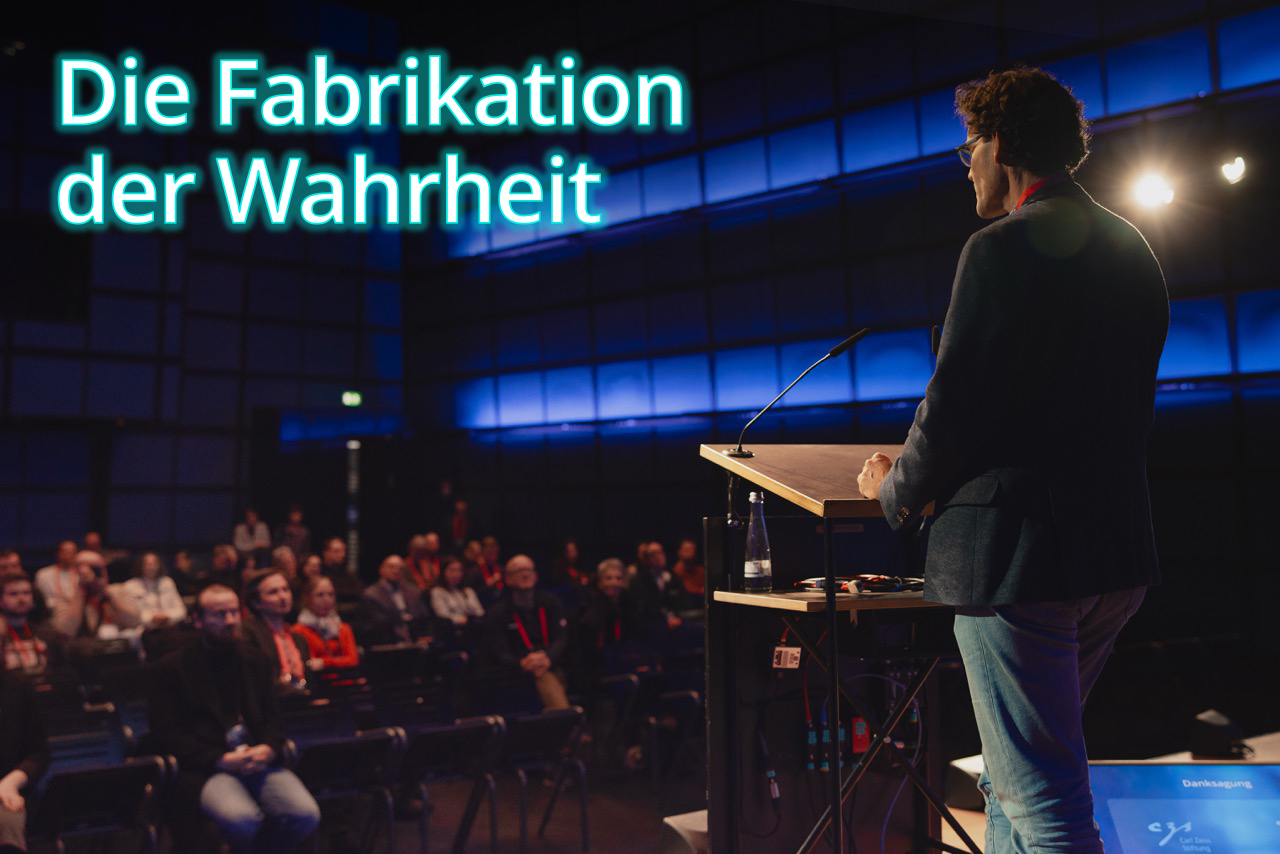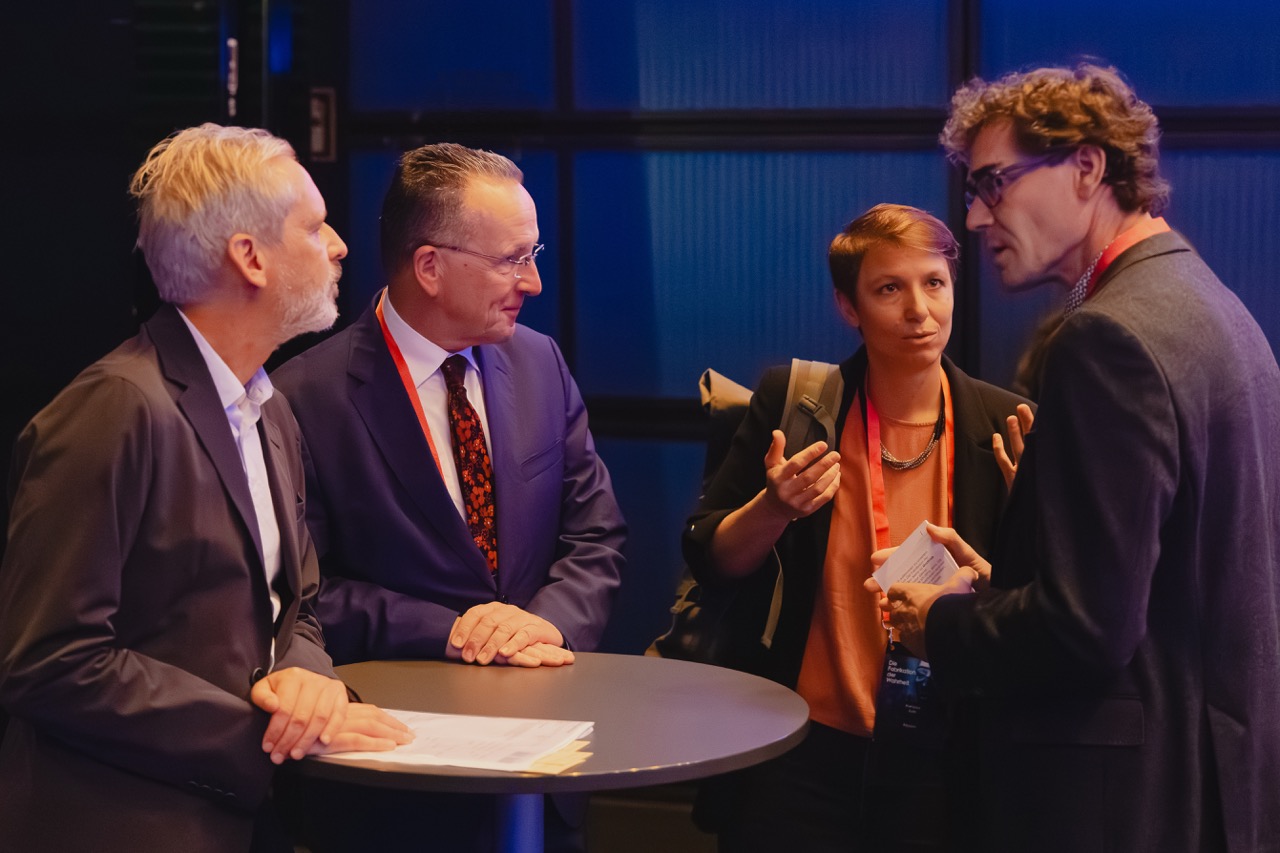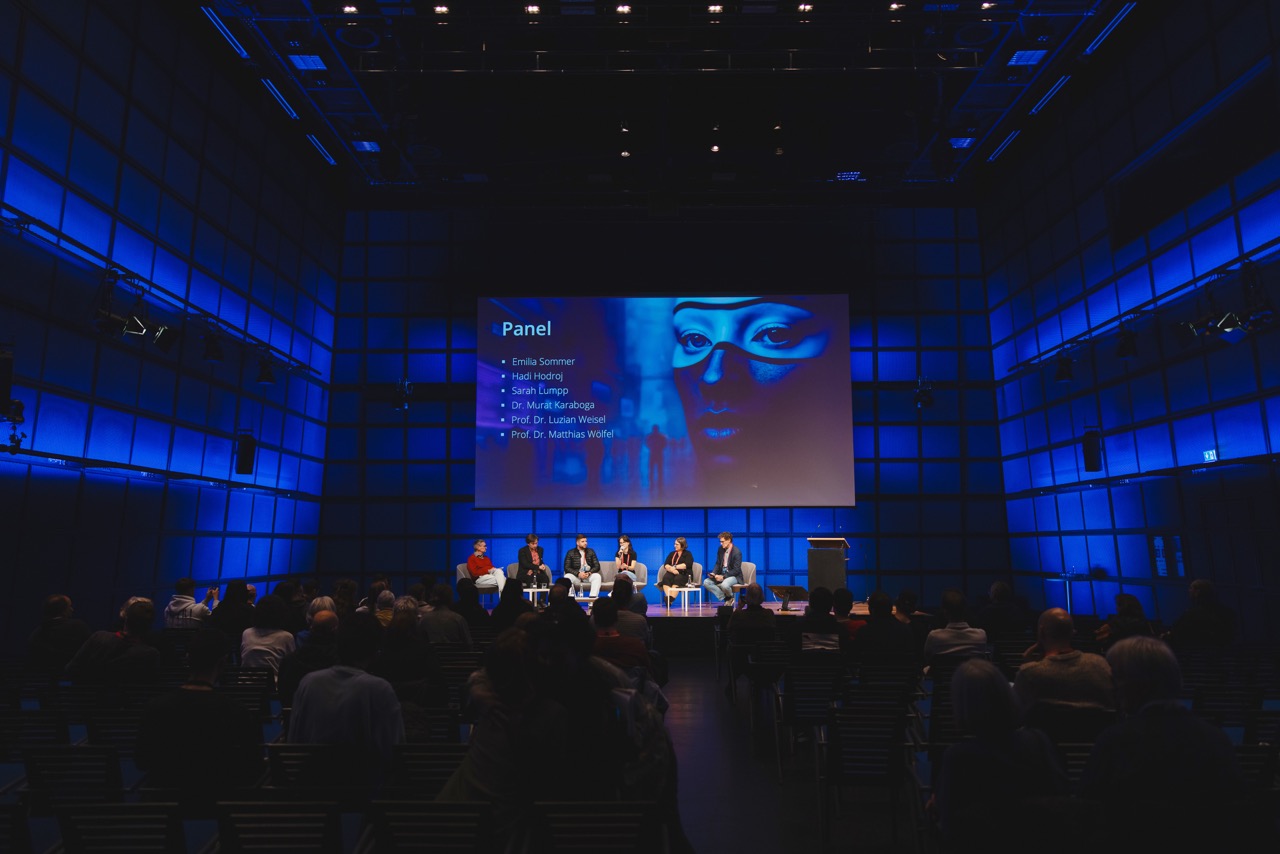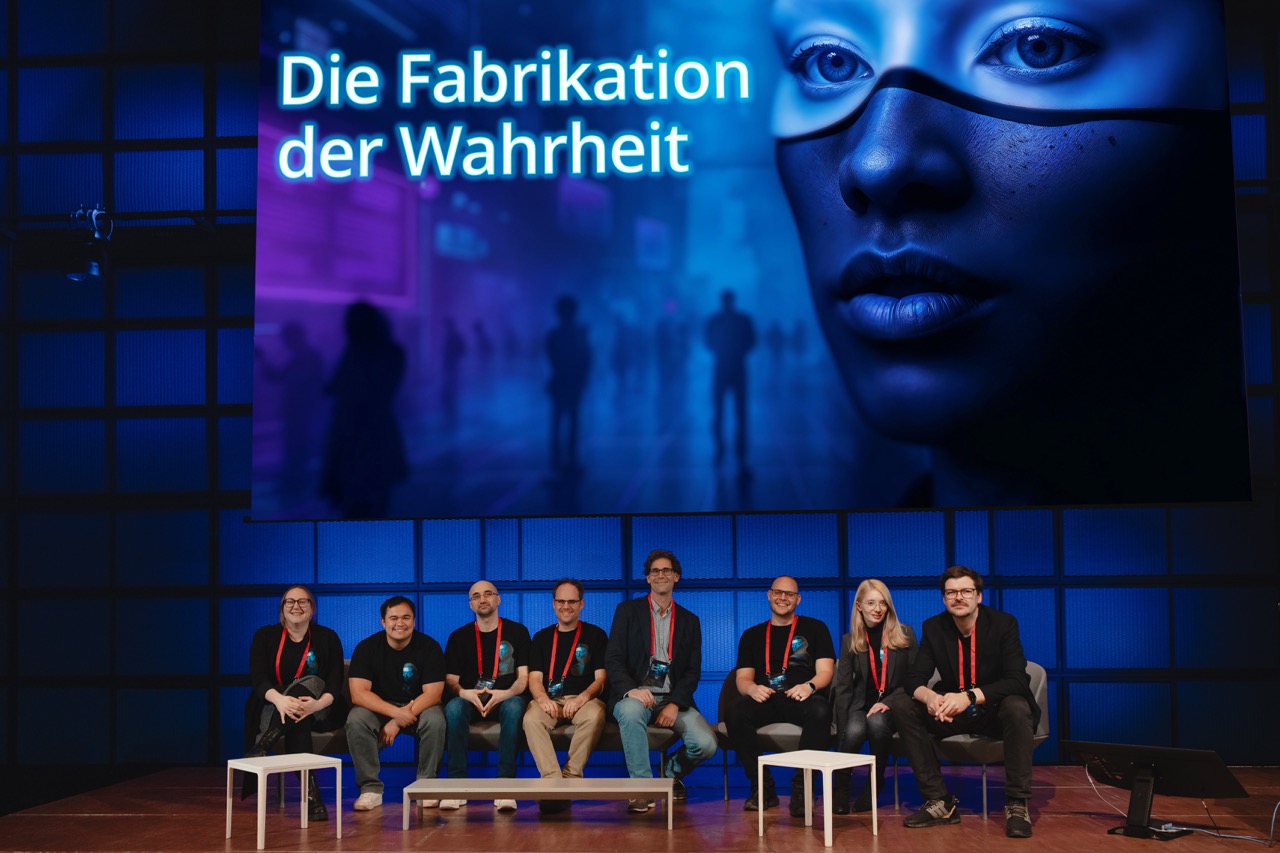With the advent of powerful AI systems, it is easier than ever to manipulate, falsify or completely recreate content. Fake news, deepfakes and automated disinformation are on the rise and pose a real threat to democratic discourse.
As the Institute for Intelligent Interaction and Immersive Experience (IIIX), which focuses on artificial intelligence and human-computer interaction, we see it as our responsibility to actively address these developments. We not only want to research and understand, but also educate and promote social dialog.
This is why we organized the symposium "The Fabrication of Truth" (in German: "Die Fabrikation der Wahrheit") in cooperation with the ZKM | Center for Art and Media Karlsruhe and supported by by the Carl Zeiss Foundation. The aim of the event was to bring together perspectives from science, practice and society and to sensitize young people in particular to the mechanisms and dangers of digital manipulation.
The symposium took place on October 24, 2025 and dedicated an entire day to the questions of how disinformation arises, how it works and how we as a society, media and science can deal with it.
Around 250 participants at the symposium
The first guests of the symposium arrived in the foyer of the ZKM | Center for Art and Media Karlsruhe at 9 am. Around 250 people had accepted our invitation: Stakeholders from education, such as teachers, pupils, students, trainees, but also academics, media professionals, politicians and interested citizens.
After a welcome address by Mayor Dr. Albert Käuflein, a video message from State Secretary Sandra Boser and words of welcome from Alistair Hudson, Scientific and Artistic Director of the ZKM | Center for Art and Media Karlsruhe, Institute Director Prof. Dr. Matthias Wölfel opened the symposium.
Lectures, panels and workshops on four main topics
All talks are available online as videos!
Two keynotes kicked off the day:
Dr. Murat Karaboga from Fraunhofer ISI spoke about the social impact of generative AI and deepfakes and showed how difficult but necessary it is to regulate these technologies appropriately.
Franziska Roth, Editor-in-Chief of SWR, emphasized the importance of quality journalism and transparency in times of disinformation and AI-generated content, and why truth remains indispensable as a common point of reference for society.
The keynotes were followed by over a dozen speeches in four thematic blocks. The presentations on social aspects and dealing with disinformation were led by IIIX employee Daniel Hepperle. IIIX employee Fiona Schmidbauer led the presentations on artificial intelligence and disinformation as well as truth, media and social communication.
Parallel to the presentations, several workshops were held in which the participants could become active themselves. They ranged from an insight into a breaking news day at SWR to psychological and legal perspectives on prebunking and topics such as misinformation in education and media literacy among vulnerable groups.
The panel discussion chaired by Prof. Dr. Matthias Wölfel in the afternoon brought together very different perspectives: From high school student Emilia Sommer and trainee Hadi Hodroj to Dr. Murat Karaboga and Prof. Dr. Luzian Weisel, Vice President of the German Society for Information and Knowledge e. V., and Sarah Lumpp, Headmistress of Helmholtz-Gymnasium Karlsruhe. The discussion impressively demonstrated how important open dialog between education, science and society is and how truth is not a fixed state, but rather only arises in the joint struggle for understanding, responsibility and trust.
In addition to the lectures, visitors were able to experience interactive installations in the foyer that made the influence of AI and media on our perception tangible. Many of these works were developed by students and employees of IIIX.
Acknowledgements
The symposium was made possible by the support of the Carl Zeiss Foundation, which allowed us to offer participation free of charge.
A big thank you also goes to the ZKM | Center for Art and Media Karlsruhe for the great cooperation, the inspiring space and the support during the event.
The greatest thanks, however, go to the speakers and guests who shaped this day with their contributions, discussions and ideas. The great interest, the quality of the contributions and the openness of the participants showed how important the dialog about truth, trust and the digital public sphere is, and that it works best when science, education and society talk about it together.



